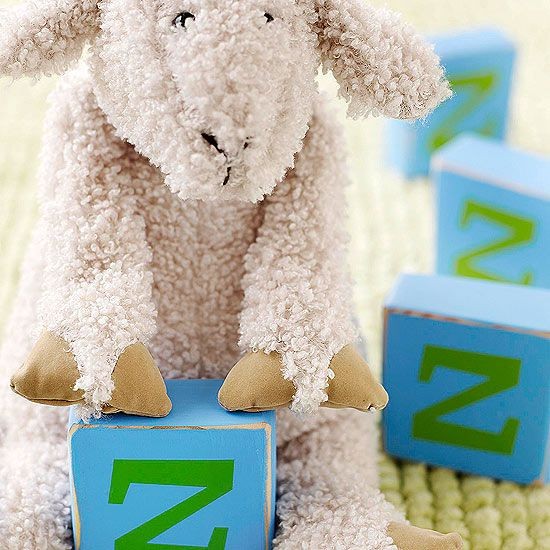Whats Your Babys Sleep Style?
01 of 10 Getting Baby on a routine

Just like adults, babies and toddlers have individual sleep styles. Mathilda, my oldest, was always a light sleeper, while her brother, A.J., could nap in a construction zone. The good news? You can help your child become a more solid snoozer, often with just a few tweaks. Here are some inventive ways to fine-tune your baby's sleep style so everyone gets more rest.
02 of 10How to Establish a Bedtime Routine 03 of 10
CATNAPPER

Some babies snooze the day away, 30 to 45 minutes at a time. Not only are the naps short, but they're also unpredictable; you never know when your baby is going to nod off. Ame Mahler Beanland says her daughter Grace catnapped into toddlerhood. "It was frustrating," says the Southlake, Texas, mom. "I would race around to do things-- shower, eat, fold laundry--never sure how long I had until she woke up."
How to cope: Catnapping may seem foreign to you, but not to your baby. "Many babies take three or four short naps per day until they're 9 or 10 months--it's totally normal," says pediatric sleep expert Jodi Mindell, PhD, author of Sleeping Through the Night. And although it may seem as if her schedule is all over the place, there is more routine than meets the eye. "Babies who take several short naps a day are typically ready for a nap one-and-a-half to two hours after they last woke up," says Mindell. To get your baby started on a more predictable schedule, Mindell suggests, wake her up at the same time every morning (say, 7:30 a.m.), then try to put her down two hours later. Don't wait until she rubs her eyes and fusses, Mindell adds; infants may be tired before they give obvious signs of sleepiness.
04 of 10Baby Sleep: All About Nap Time 05 of 10
THE EARLY BIRD

Kristen Napoleon's daughter Jamey used to rouse her before dawn. "At first, I would stumble in and pick her up, happy she had slept through the night," says the Pittsburgh mom. "But getting up that early got old very quickly."
How to cope: For infants, it's fairly normal to rise at 5 or 6 a.m. "If you put them to bed at 6 or 7 p.m., that's a full night's sleep," says Mindell. Moving bedtime later in 15-minute increments sometimes helps. If it doesn't, Mindell says, it's likely your baby is hardwired to be a morning person. Another tactic: treat the morning awakening as if it were a middle-of-the-night one. Keep the lights low, talk in a soothing voice, and see if she'll settle herself back to sleep. Napoleon found that waiting just five minutes was often enough for her daughter to fall back asleep on her own.
06 of 10Baby Sleep: The Importance of Self-Soothing 07 of 10
PICKY SLEEPERS

My third baby, Mary Elena, usually snoozed in her car seat while I drove her siblings to piano lessons and soccer practice. Consequently, she wouldn't sleep in her crib for naps at home. (The worst days were when she would drift off in the van for ten minutes or so--just enough to take the edge off--and then refuse to nap any longer, anywhere.) Cathy Hale has the opposite problem: feeling like a prisoner to her sons' rigid nap schedules. "I trained them so well, they would sleep only in their cribs," says the Austin, Texas, mom to Steele, 4, and Cruz, 1. "It's great when we're home, but it makes overnight visits or an afternoon of errands nearly impossible."
How to cope: Picky sleepers are made, not born, says pediatric psychologist Ethan Benore, PhD, who conducts sleep seminars for new parents at Akron Children's Hospital. "We inadvertently teach babies to need certain things when they fall asleep," he says. "If he nods off in a swing every afternoon, you're setting up a pattern that's hard to break later." If you want your baby to be a good crib napper, you need to make it a priority now, he says. Use a transitional object (a favorite toy, mom's old T-shirt) to make the crib more inviting, and stick to a soothing, consistent naptime routine.
And for the baby who won't sleep anywhere but his crib? Consider it a temporary inconvenience, as experts agree that a regularly scheduled nap in bed is always the best. And yes, you may have to stick close to home most days. Once a week or so, you can try to get your baby to take a longer morning snooze, then venture out with Mr. No-Nap during the afternoon. If you absolutely must go out and want to keep your baby awake for a short car ride, avoid cozy wrappings, and do everything in your power to stimulate him, Benore- says--sing or put on a kids' CD, talk, open the window a crack.
08 of 10Baby Sleep: Get the Facts 09 of 10
LIGHT SLEEPERS

Just about anything wakes up a light sleeper: the cat walking by, a car horn blowing outside, a sunbeam coming through the window. "I feel as if I can't make noise in the kitchen, which is right below my daughter's bedroom," says Jessica Toy, of Ohio Township, Pennsylvania, mom of 19-month-old Lydia.
How to cope: Babies who seem to be light sleepers may actually be poor self-soothers, says Carol Ash, MD, medical director of Sleep for Life sleep lab at the Somerset Medical Center, in New Jersey. "Children often awaken for a few seconds during a nap, so give her a chance to settle herself," Ash advises. To promote deeper sleep, invest in room-darkening shades, keep the temperature comfortably cool, and use white noise (radio, CD with ocean sounds, a noisy fan) to help block out distracting sounds. Also, try not to let your baby nod off in utter silence.
Originally published in American Baby magazine.
10 of 10 Baby Sleep: When to Let Your Baby Cry It Out
-
Once you have found the perfect bassinet, you may want to personalize it with an original bassinet liner. This sewing project is simple to do and allows you to use material that matches your nursery and decorating them. There are several different st
-
Having a baby requires constant care and attention. The issue of sleep is a troubling one for parents that have a fear of sleep-related problems such as Sudden Infant Death Syndrome (SIDS). Pediatricians and the government promote back sleeping to st
-
Biological anthropologist Gwen Dewar of Parenting Science recommends that babies get 16 to 17 hours sleep in the first months of life. If your newborn spends that much time snuggled in a bassinet or co-sleeper, prepare to meet some resistance when it


